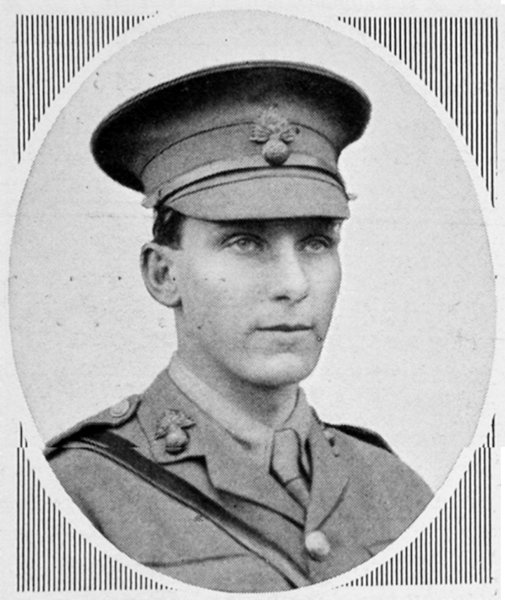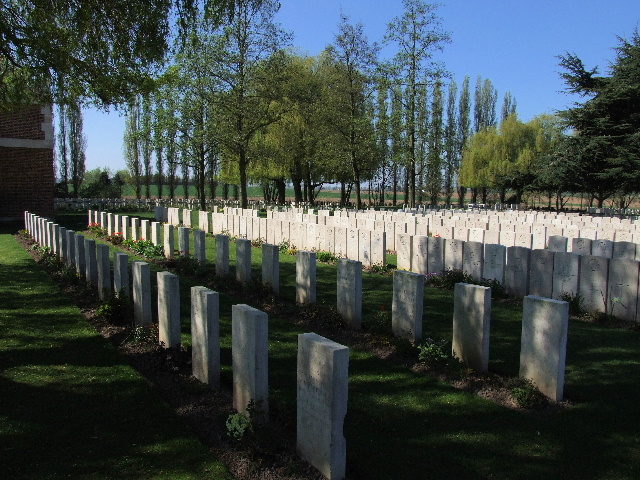Name
Adrian Thomas Hardman
1890
Conflict
First World War
Date of Death / Age
30/03/1916
25
Rank, Service Number & Service Details
Lieutenant
Royal Fusiliers (City of London Regiment)
4th Bn
Awards: Service Medals/Honour Awards
British War and Victory medals
Cemetery/Memorial: Name/Reference/Country
LIJSSENTHOEK MILITARY CEMETERY
V A 11
Belgium
Headstone Inscription
A TALENTED ARCHITECT AND BRAVE SOLDIER WITH GOD
UK & Other Memorials
Northaw Village Memorial, Ind. Memorial, Original St Andrews 'Tin Tabernacle' Church (Demolished), Cuffley (lost), Not on the Potters Bar memorials
Pre War
Adrian Thomas Hardman was born in 1890 in Potters Bar, Herts to Thomas Hardman and Emma Louise (nee Shubrook). On the 1891 Census, when Adrian was 8 months old, the family were living at Cotton Road, South Mimms, Herts and his father was a Clerk to the Clerkenwell County Court. His mother was said to be an artist. By the 1901 Census the family were living at Brick Kiln Farm Cottages in Northaw, Herts and his father’s occupation is given as artist/painter.
On the 1911 the family were living at Eastcot in Northaw. His parents were both painter/artists and Adrian was an Architectural student at The Royal British Institute of Architects.
He was educated at Christ’s Hospital School, (Bluecoat School, Hertford), leaving when he was 15, He studied in both London and in Paris where he was intending to enter the Ecole des Beaux Arts.
Wartime Service
Adrian initially enlisted as a Corporal ser. no. 1702. In the Officers Training Corps and was commissioned as a 2nd Lieutenant in the 6th (Reserve) Battalion Royal Fusiliers (city of London Regiment) in Feb 1915 and went to France on 8 Feb 1916 joining 4th Battalion. On 27th Mar the same year he was wounded at the Actions of St Eloi Craters (27 Mar - 16 Apr 1916) and subsequently died from his injuries on 30 Mar 1916.
Extract from www.1914-1918.net: “At 4.15am the mines blew within a few seconds of each other and the artillery barrage joined in. The infantry barely waited the planned 30 seconds to get going. On the right the 1st Northumberland Fusiliers reached the German wire with the loss of only a single soldier; the 4th Royal Fusiliers were however hit by machine gun fire as they went over the top. German artillery responded very quickly: less than a minute after the last of the Northumberlands left the front line, shellfire began to fall on the British trenches, no man’s land and the new craters. As the depleted Royal Fusiliers advanced into the inferno, they quickly became disorientated as the ground had changed so much – and visibility also so poor – that they simply could not tell whether they were in a crater or an old German trench.”
Additional Information
His father Thomas Hardman received a war gratuity £5 and pay owing of £78 5s 5d..
Acknowledgments
Brenda Palmer, Neil Cooper
www.1914-1918.net, www.lijssenthoek.be, Brian Lodge, www.chwarmemorial.org.uk



